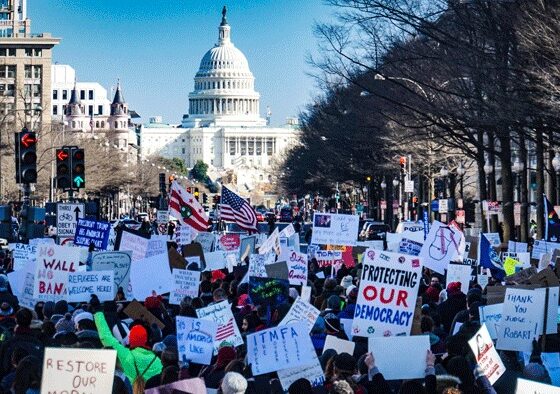If Donald Trump’s return to the White House has shown us anything, it’s that America’s social divisions are only getting deeper and deeper. The past two weeks have not only reflected a future of deep distress, but also one where the rights and protections of many are in harm’s way.
From the withdrawal of international agreements to immigration policy changes, Trump’s plans for his second term seem to be driven by a reckless disregard for human rights and global stability. His policies are not only deepening social divisions, but also stripping away protections for marginalized communities, prioritizing power over the well-being of many individuals.
Among these power-driven decisions is the dismantling of diversity, equity and inclusion (DEI) federal programs across the United States, a move that undermines decades of progress toward workplace and educational equity.
By targeting these initiatives, Trump is reinforcing systemic barriers and sending a clear message that the rights and opportunities of marginalized communities are not a priority in his administration as these policies promote “dangerous, demeaning and immoral race and sex-based preferences.”
Perhaps most concerning is the way Trump’s executive order aims to target a variety of colleges and programs, including the University of Denver, through a strategic enforcement plan.
For DU students, particularly those from marginalized communities, the dismantling of DEI programs could lead to feelings of vulnerability. Students rely on these programs for support systems, resources and a sense of belonging in a predominantly white institution.
If these programs are dismantled, it could make it more difficult for students of color to thrive academically and socially. The absence of DEI initiatives would not only hinder the success of a variety of students, but it could also contribute to a campus environment that feels less inclusive.
Seeing how Trump aims to dismantle DEI programs across the United States is nothing short of heartbreaking. As someone who has seen and experienced all the good these programs offer, it’s difficult to watch as they’re stripped away.
DEI initiatives have been vital in creating safe spaces where students and employees from marginalized communities can feel seen, supported and heard. They provide not only resources and guidance, but also a sense of belonging in environments that often feel isolating and unwelcoming.
To lose DEI is to erase all the progress we’ve made toward a more equitable and inclusive society. The harm caused by these actions is not abstract — it’s deeply personal for those of us who have benefited from these programs and for those who will be left vulnerable in their absence.








